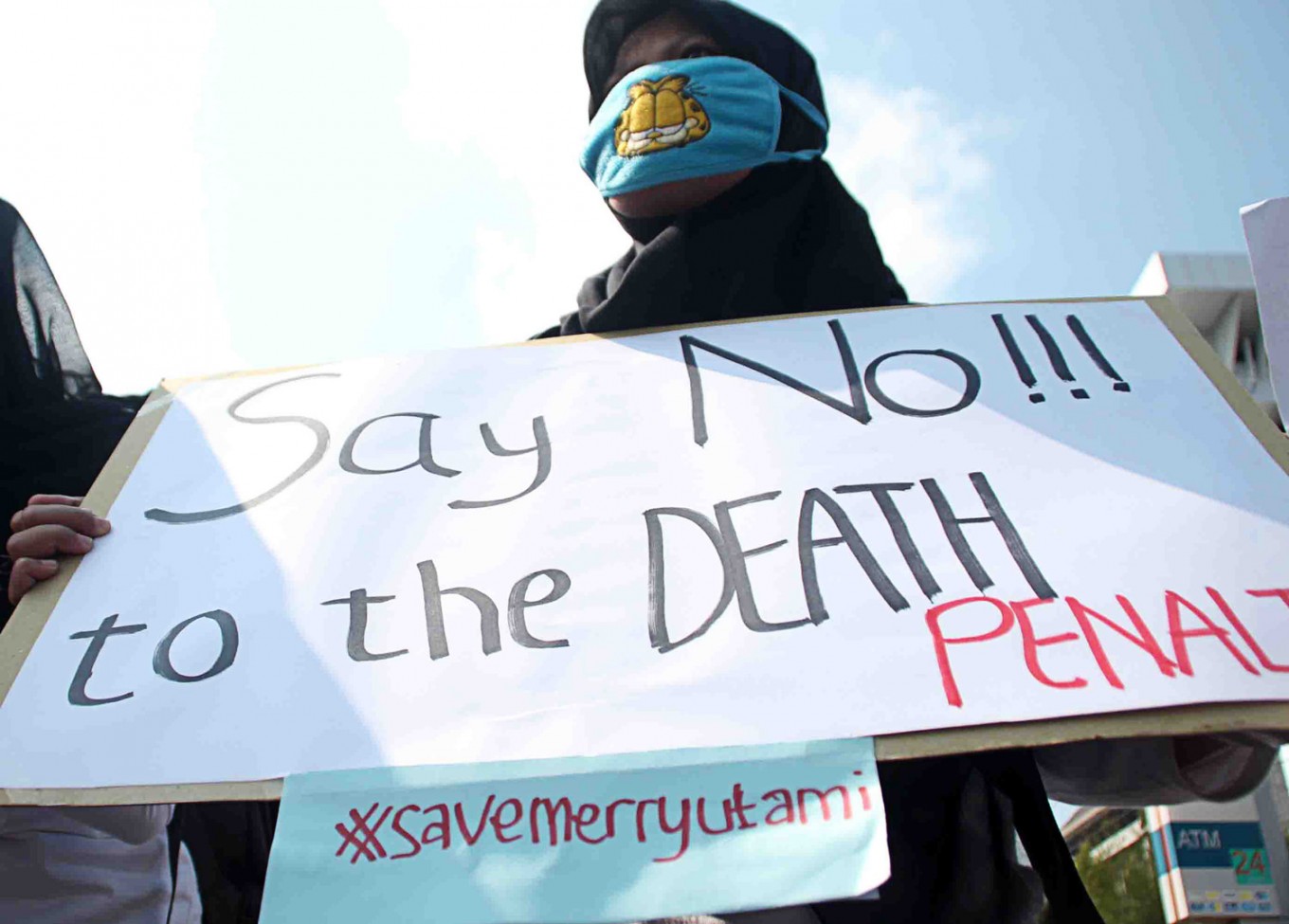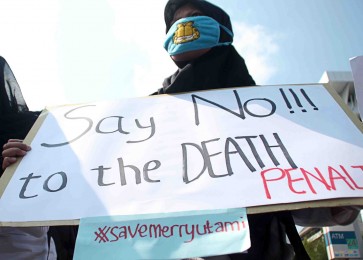Popular Reads
Top Results
Can't find what you're looking for?
View all search resultsPopular Reads
Top Results
Can't find what you're looking for?
View all search resultsAs executions drop, review death penalty
Amnesty International revealed that executions recorded around the world continued to decrease, from 1,032 in 2016 to 993 in 2017.
Change text size
Gift Premium Articles
to Anyone
T
he global trend to resort to the death penalty decreased in 2017. The good news is that Indonesia played a part in this positive trend by not carrying out any executions and reducing the number of death sentences imposed. The bad news: The country still keeps the death penalty in its laws, meaning the constant threat of the ultimate cruel and inhuman form of punishment still looms over more than 260 people on death row.
Amnesty International published on April 12 its “Global Report on Death Sentences and Executions in 2017”, which revealed that executions recorded around the world continued to decrease, from 1,032 in 2016 to 993 in 2017. This does not include the thousands of people believed to have been executed in China, which remained the world’s top executioner.
Despite the resumption of executions in four countries in the Middle East, the number of executing countries in 2017 remained 23, just like in 2016.
What do all of these numbers mean? Indonesia must do more than just delay executions. Instead, it should impose a moratorium on the implementation of the death penalty with a view to its eventual repeal. Indonesia needs to give itself time to reflect on the lack of effectiveness of the death penalty and authorities’ repeated claims that it could deter crimes, especially those that are drug-related. In fact, there are many countries Indonesia could learn from when it comes to the death penalty.
As of today, 142 countries have abolished capital punishment in law or practice — more than two-thirds of the world’s countries. Indonesia should be brave enough to follow in the footsteps of Guinea and Mongolia, which abolished the death penalty for all crimes in 2017.
It has been encouraging that the House of Representatives and the government are currently looking to amend provisions in the Criminal Code on the death penalty, which could lead to further drops in its use. This would allow for the death sentence to be commuted to a life sentence or 20 years’ imprisonment, for instance, for death-row inmates who show “good behavior”. This, however, still fails to bring the use of the death penalty in Indonesia in line with restrictions in international law and standards.
Indonesia could study several positive global developments in 2017. Amnesty International recorded a noticeable decrease in the overall number of executions carried out for drug-related offences in 2017 — mostly due to a decrease in such executions in Iran.


















